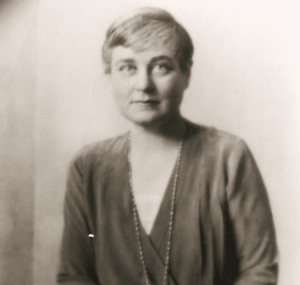 In 2025, Frontier Nursing University celebrates the 100-year anniversary of the inception of the Frontier Nursing Service. We are grateful for the alumni, students, couriers, donors, volunteers, friends, and employees who have made an incredible impact on FNU’s century-long journey. We are celebrating this milestone year by capturing and sharing some of the countless stories that make up our history. Whatever your connection to FNU, we hope you enjoy these stories and are inspired to share your own story with us.
In 2025, Frontier Nursing University celebrates the 100-year anniversary of the inception of the Frontier Nursing Service. We are grateful for the alumni, students, couriers, donors, volunteers, friends, and employees who have made an incredible impact on FNU’s century-long journey. We are celebrating this milestone year by capturing and sharing some of the countless stories that make up our history. Whatever your connection to FNU, we hope you enjoy these stories and are inspired to share your own story with us.
Mary Carson Breckinridge was born on February 17, 1881, in Memphis, Tennessee. She graduated from the St. Luke’s Hospital School of Nursing in New York in 1910. After World War I, she joined the American Committee for Devastated France. While in Europe, she became acquainted with the nurse-midwives in France and Great Britain. She believed nurse-midwives could meet the problem of medical care for mothers and babies in rural America. She studied midwifery at the British Hospital for Mothers and Babies in London. She also spent time with the Highlands and Islands Medical and Nursing Service in Scotland, which served as a model for the Frontier Nursing Service.
 Mrs. Breckinridge returned to the U.S. and studied Public Health Nursing at Columbia University. She formulated two goals: improving the health of children and pioneering a system of rural health care that could serve as a model for systems serving the most remote regions of the world.
Mrs. Breckinridge returned to the U.S. and studied Public Health Nursing at Columbia University. She formulated two goals: improving the health of children and pioneering a system of rural health care that could serve as a model for systems serving the most remote regions of the world.
Mary Breckinridge founded the Frontier Nursing Service (FNS) in 1925 in the mountainous, rural setting of southeastern Kentucky. The FNS was a health care system with a hospital at the center and the outpost/nursing clinics located within a five-mile ride on horseback. These centers were staffed by nurse-midwives, who held clinics, made rounds on horseback providing home care, and went to the homes to attend births. They served an average of 250 families per outpost. They also held immunization clinics at one-room schools and provided advice regarding sanitization of wells and outhouses.
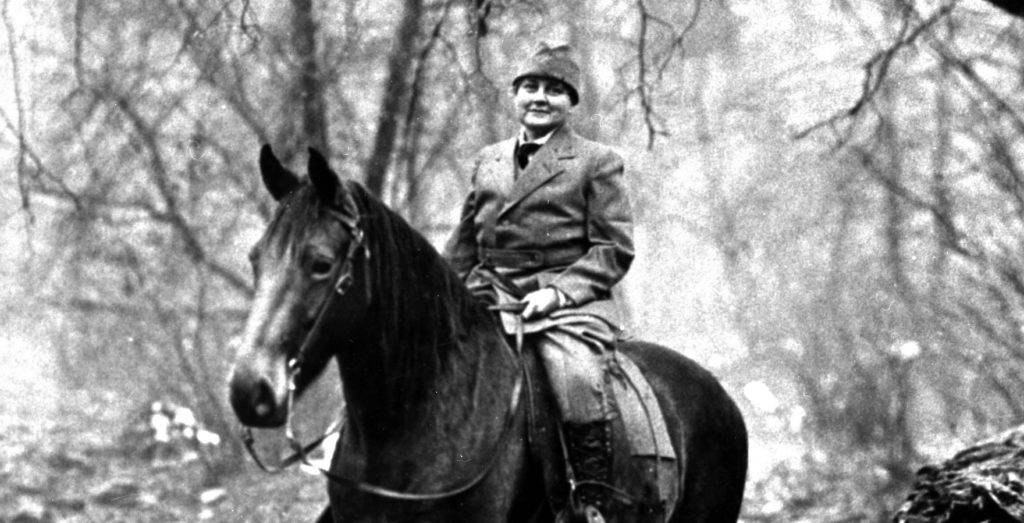
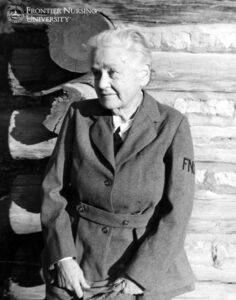 Until 1939, the majority of the FNS nurse-midwives were British. When World War II began, many of those nurse-midwives returned home. In response, Mrs. Breckinridge established the Frontier Graduate School of Midwifery in 1939, which is now known as Frontier Nursing University. Many of the FGSM nurse-midwives went on to staff the FNS.
Until 1939, the majority of the FNS nurse-midwives were British. When World War II began, many of those nurse-midwives returned home. In response, Mrs. Breckinridge established the Frontier Graduate School of Midwifery in 1939, which is now known as Frontier Nursing University. Many of the FGSM nurse-midwives went on to staff the FNS.
The FNS resulted in an immediate decrease in infant and maternal mortality. By 1958, the FNS nurse-midwives had attended over 10,000 births. All maternal and infant outcome statistics for the Service’s first 30 years of operation (1925-1954) were better than for the country. The biggest differences were in the maternal mortality rate (9.1 per 10,000 births for FNS, compared with 34 per 10,000 births for the United States as a whole) and low birth weight (3.8 percent for FNS, compared with 7.6 percent for the country).
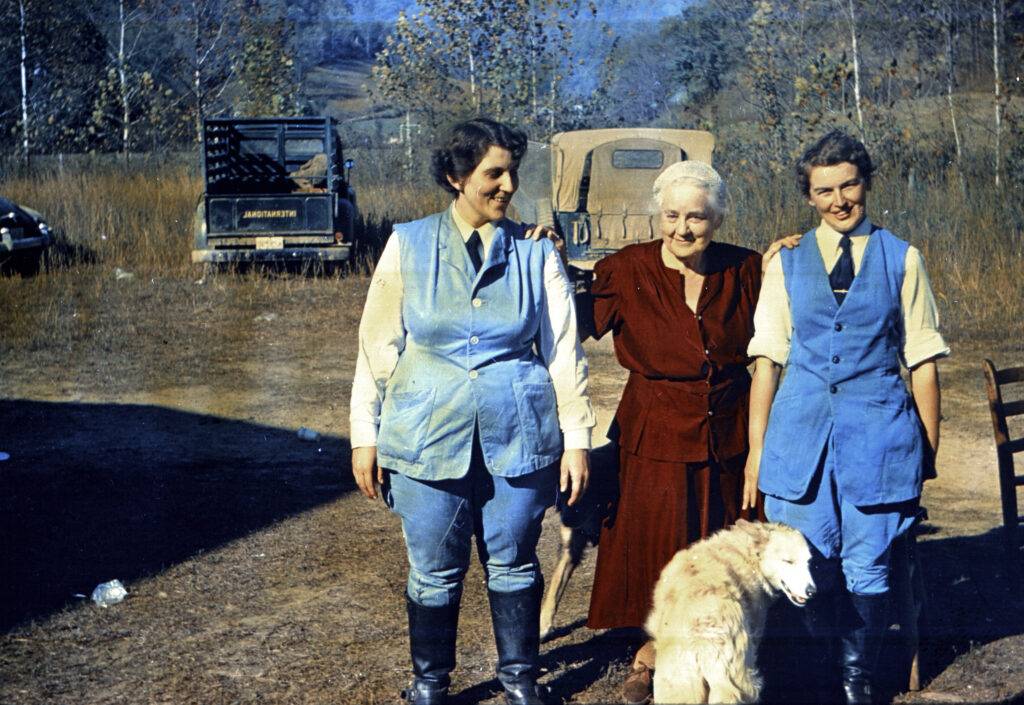
Mrs. Breckinridge passed away on May 16, 1965. Although Frontier has naturally evolved over the years, Mary Breckinridge’s vision to transform healthcare, with particular emphasis on rural and underserved populations, remains central to FNU’s mission today.
We want to celebrate our anniversary by capturing and sharing the countless stories that make up our history. Whatever your connection to FNU, we are incredibly grateful to you and want to hear your Frontier story. Share your story here.
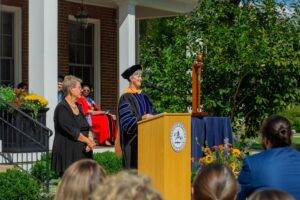
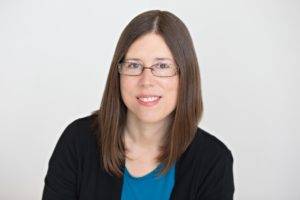
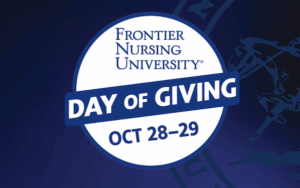



 The Fellowship runs from August 2024 through January 2025 and includes a $1,000 stipend for each student.
The Fellowship runs from August 2024 through January 2025 and includes a $1,000 stipend for each student.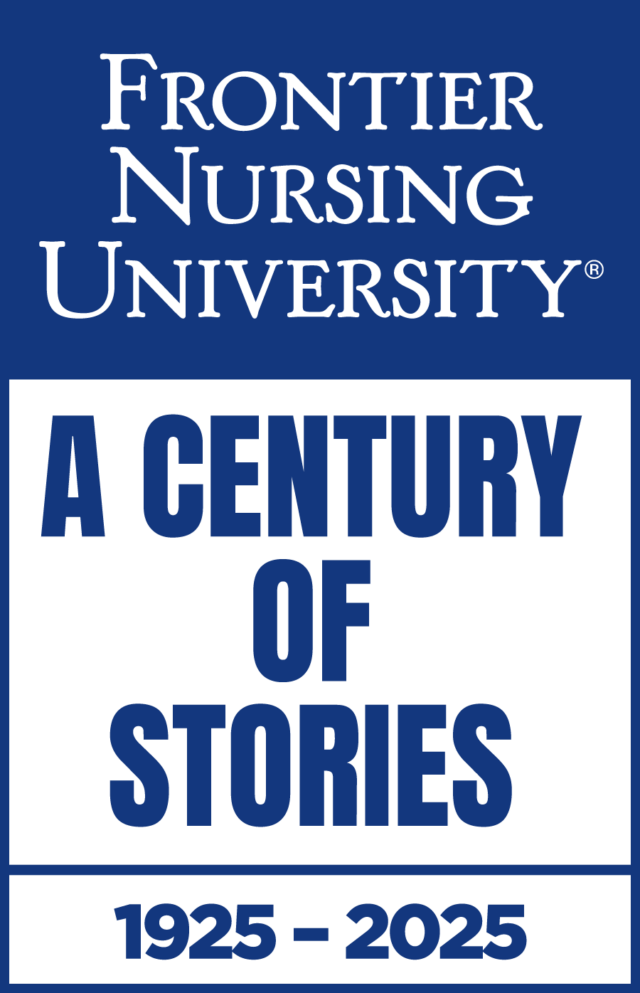 In 2025, Frontier Nursing University honors and celebrates 100 years of healthcare service and education since our inception as Frontier Nursing Service in 1925. That was the year that Mary Breckinridge founded the Frontier Nursing Service (FNS) to provide care to mothers, children, and families in rural eastern Kentucky. In its early years, FNS offered scholarships to American nurses to go to Great Britain for training in nurse-midwifery and recruited British nurse-midwives. In 1939, FNS established the Frontier Graduate School of Midwifery, now known as Frontier Nursing University (FNU).
In 2025, Frontier Nursing University honors and celebrates 100 years of healthcare service and education since our inception as Frontier Nursing Service in 1925. That was the year that Mary Breckinridge founded the Frontier Nursing Service (FNS) to provide care to mothers, children, and families in rural eastern Kentucky. In its early years, FNS offered scholarships to American nurses to go to Great Britain for training in nurse-midwifery and recruited British nurse-midwives. In 1939, FNS established the Frontier Graduate School of Midwifery, now known as Frontier Nursing University (FNU).





 Not so long ago, Ebony Monique Simpson, RN, BSN, CNM (Class 104), would have more likely written this story than been its subject. After graduating from Howard University with a journalism degree, she worked for a global public relations firm in Manhattan, representing pharmaceutical companies. But she knew that was not where she wanted to be. Her true passion had always been to
Not so long ago, Ebony Monique Simpson, RN, BSN, CNM (Class 104), would have more likely written this story than been its subject. After graduating from Howard University with a journalism degree, she worked for a global public relations firm in Manhattan, representing pharmaceutical companies. But she knew that was not where she wanted to be. Her true passion had always been to  Simpson values the lifelong friendships she made at Frontier and the ability to connect with fellow alumni.
Simpson values the lifelong friendships she made at Frontier and the ability to connect with fellow alumni. “I feel like I’m making a huge difference,” Simpson said. “Midwifery care is needed in these kinds of settings. It’s a big change for me because, before this, I was doing out-of-hospital births in private homes and at a birth center.”
“I feel like I’m making a huge difference,” Simpson said. “Midwifery care is needed in these kinds of settings. It’s a big change for me because, before this, I was doing out-of-hospital births in private homes and at a birth center.” Simpson adds that patients need to be able to have longer visits with more time to express their concerns and preferences and to become more comfortable with their providers.
Simpson adds that patients need to be able to have longer visits with more time to express their concerns and preferences and to become more comfortable with their providers. Simpson is taking an active approach to integrating midwifery care into the hospital setting and teaching nurses and doctors more about the
Simpson is taking an active approach to integrating midwifery care into the hospital setting and teaching nurses and doctors more about the 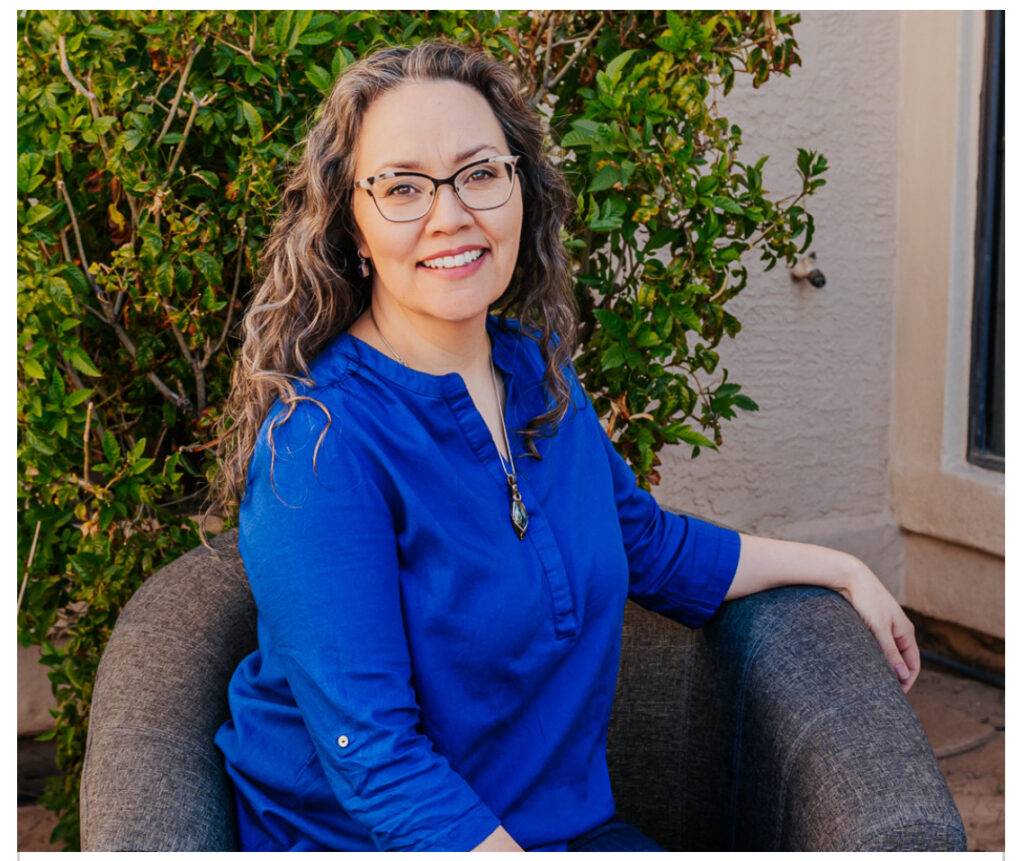 Frontier graduate Marianna Holland, DNP, CNM, filled a crucial gap in healthcare in her community when she opened her own birth center, New Phase at the Birth Nest in Glendale, Arizona. New Phase, which was opened after Dr. Holland graduated from FNU with a
Frontier graduate Marianna Holland, DNP, CNM, filled a crucial gap in healthcare in her community when she opened her own birth center, New Phase at the Birth Nest in Glendale, Arizona. New Phase, which was opened after Dr. Holland graduated from FNU with a 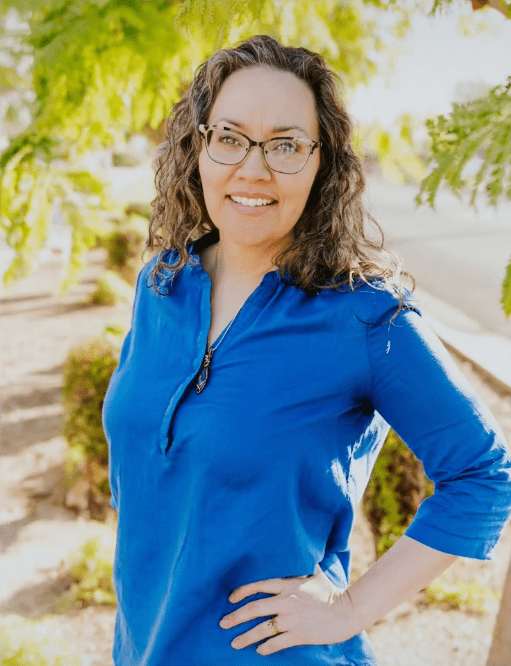 Before graduating from Frontier, Dr. Holland served for nearly a decade as an acute care labor and delivery nurse. She said while in nursing school, she was taught by an FNU graduate, an experience that inspired her to study at FNU. She said she was also motivated by the
Before graduating from Frontier, Dr. Holland served for nearly a decade as an acute care labor and delivery nurse. She said while in nursing school, she was taught by an FNU graduate, an experience that inspired her to study at FNU. She said she was also motivated by the 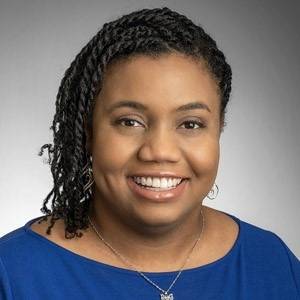 Dr. Victoria Buchanan, DNP (Class 40), CNM, believes that hospital-based
Dr. Victoria Buchanan, DNP (Class 40), CNM, believes that hospital-based 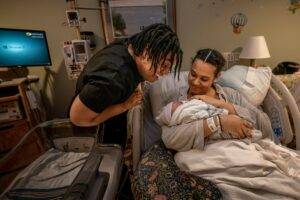
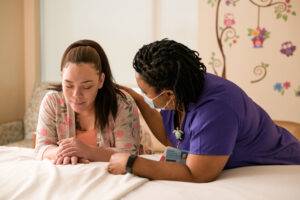 “We as nurses try to advocate for our patients, but I realized that the damage has already been done. Your provider makes an enormous difference in what kind of birth experience you have. These clients wanted a type of birth that was more natural, less intervention unless it was medically necessary.”
“We as nurses try to advocate for our patients, but I realized that the damage has already been done. Your provider makes an enormous difference in what kind of birth experience you have. These clients wanted a type of birth that was more natural, less intervention unless it was medically necessary.”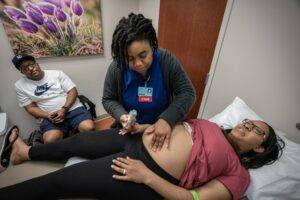



















 Carrie Belin is an experienced board-certified Family Nurse Practitioner and a graduate of the Johns Hopkins DNP program, Johns Hopkins Bloomberg School of Public Health, Georgetown University School of Nursing, and Johns Hopkins School of Nursing. She has also completed fellowships at Georgetown and the University of California Irvine.
Carrie Belin is an experienced board-certified Family Nurse Practitioner and a graduate of the Johns Hopkins DNP program, Johns Hopkins Bloomberg School of Public Health, Georgetown University School of Nursing, and Johns Hopkins School of Nursing. She has also completed fellowships at Georgetown and the University of California Irvine. Angie has been a full-scope midwife since 2009. She has experience in various birth settings including home, hospital, and birth centers. She is committed to integrating the midwifery model of care in the US. She completed her master’s degree in nurse-midwifery at Frontier Nursing University (FNU) and her Doctorate at Johns Hopkins University. She currently serves as the midwifery clinical faculty at FNU. Angie is motivated by the desire to improve the quality of healthcare and has led quality improvement projects on skin-to-skin implementation, labor induction, and improving transfer of care practices between hospital and community midwives. In 2017, she created a short film on skin-to-skin called
Angie has been a full-scope midwife since 2009. She has experience in various birth settings including home, hospital, and birth centers. She is committed to integrating the midwifery model of care in the US. She completed her master’s degree in nurse-midwifery at Frontier Nursing University (FNU) and her Doctorate at Johns Hopkins University. She currently serves as the midwifery clinical faculty at FNU. Angie is motivated by the desire to improve the quality of healthcare and has led quality improvement projects on skin-to-skin implementation, labor induction, and improving transfer of care practices between hospital and community midwives. In 2017, she created a short film on skin-to-skin called 










 Justin C. Daily, BSN, RN, has ten years of experience in nursing. At the start of his nursing career, Justin worked as a floor nurse on the oncology floor at St. Francis. He then spent two years as the Director of Nursing in a small rural Kansas hospital before returning to St. Francis and the oncology unit. He has been in his current position as the Chemo Nurse Educator for the past four years. He earned an Associate in Nurse from Hutchinson Community College and a Bachelor of Science in Nursing from Bethel College.
Justin C. Daily, BSN, RN, has ten years of experience in nursing. At the start of his nursing career, Justin worked as a floor nurse on the oncology floor at St. Francis. He then spent two years as the Director of Nursing in a small rural Kansas hospital before returning to St. Francis and the oncology unit. He has been in his current position as the Chemo Nurse Educator for the past four years. He earned an Associate in Nurse from Hutchinson Community College and a Bachelor of Science in Nursing from Bethel College. Brandy Jackson serves as the Director of Undergraduate Nursing Programs and Assistant Educator at Wichita State University and Co-Director of Access in Nursing. Brandy is a seasoned educator with over 15 years of experience. Before entering academia, Brandy served in Hospital-based leadership and Critical Care Staff nurse roles. Brandy is passionate about equity in nursing education with a focus on individuals with disabilities. Her current research interests include accommodations of nursing students with disabilities in clinical learning environments and breaking down barriers for historically unrepresented individuals to enter the nursing profession. Brandy is also actively engaged in Interprofessional Education development, creating IPE opportunities for faculty and students at Wichita State. Brandy is an active member of Wichita Women for Good and Soroptimist, with the goal to empower women and girls. Brandy is a TeamSTEPPS master trainer. She received the DASIY Award for Extraordinary Nursing Faculty in 2019 at Wichita State University.
Brandy Jackson serves as the Director of Undergraduate Nursing Programs and Assistant Educator at Wichita State University and Co-Director of Access in Nursing. Brandy is a seasoned educator with over 15 years of experience. Before entering academia, Brandy served in Hospital-based leadership and Critical Care Staff nurse roles. Brandy is passionate about equity in nursing education with a focus on individuals with disabilities. Her current research interests include accommodations of nursing students with disabilities in clinical learning environments and breaking down barriers for historically unrepresented individuals to enter the nursing profession. Brandy is also actively engaged in Interprofessional Education development, creating IPE opportunities for faculty and students at Wichita State. Brandy is an active member of Wichita Women for Good and Soroptimist, with the goal to empower women and girls. Brandy is a TeamSTEPPS master trainer. She received the DASIY Award for Extraordinary Nursing Faculty in 2019 at Wichita State University.  Dr. Sabrina Ali Jamal-Eddine is an Arab-disabled queer woman of color with a PhD in Nursing and an interdisciplinary certificate in Disability Ethics from the University of Illinois Chicago (UIC). Dr. Jamal-Eddine’s doctoral research explored spoken word poetry as a form of critical narrative pedagogy to educate nursing students about disability, ableism, and disability justice. Dr. Jamal-Eddine now serves as a Postdoctoral Research Associate in UIC’s Department of Disability and Human Development and serves on the Board of Directors of the National Organization of Nurses with Disabilities (NOND). During her doctoral program, Sabrina served as a Summer Fellow at a residential National Endowment of the Humanities (NEH) Summer Institute at Arizona State University (2023), a summer fellow at Andrew W. Mellon’s National Humanities Without Walls program at University of Michigan (2022), a Summer Research Fellow at UC Berkeley’s Othering & Belonging Institute (2021), and an Illinois Leadership Education in Neurodevelopmental and related Disabilities (LEND) trainee (2019-2020).
Dr. Sabrina Ali Jamal-Eddine is an Arab-disabled queer woman of color with a PhD in Nursing and an interdisciplinary certificate in Disability Ethics from the University of Illinois Chicago (UIC). Dr. Jamal-Eddine’s doctoral research explored spoken word poetry as a form of critical narrative pedagogy to educate nursing students about disability, ableism, and disability justice. Dr. Jamal-Eddine now serves as a Postdoctoral Research Associate in UIC’s Department of Disability and Human Development and serves on the Board of Directors of the National Organization of Nurses with Disabilities (NOND). During her doctoral program, Sabrina served as a Summer Fellow at a residential National Endowment of the Humanities (NEH) Summer Institute at Arizona State University (2023), a summer fellow at Andrew W. Mellon’s National Humanities Without Walls program at University of Michigan (2022), a Summer Research Fellow at UC Berkeley’s Othering & Belonging Institute (2021), and an Illinois Leadership Education in Neurodevelopmental and related Disabilities (LEND) trainee (2019-2020). Vanessa Cameron works for Vanderbilt University Medical Center in Nursing Education & Professional Development. She is also attending George Washington University and progressing towards a PhD in Nursing with an emphasis on ableism in nursing. After becoming disabled in April 2021, Vanessa’s worldview and perspective changed, and a recognition of the ableism present within healthcare and within the culture of nursing was apparent. She has been working since that time to provide educational foundations for nurses about disability and ableism, provide support for fellow disabled nursing colleagues, and advocate for the disabled community within healthcare settings to reduce disparities.
Vanessa Cameron works for Vanderbilt University Medical Center in Nursing Education & Professional Development. She is also attending George Washington University and progressing towards a PhD in Nursing with an emphasis on ableism in nursing. After becoming disabled in April 2021, Vanessa’s worldview and perspective changed, and a recognition of the ableism present within healthcare and within the culture of nursing was apparent. She has been working since that time to provide educational foundations for nurses about disability and ableism, provide support for fellow disabled nursing colleagues, and advocate for the disabled community within healthcare settings to reduce disparities. Dr. Lucinda Canty is a certified nurse-midwife, Associate Professor of Nursing, and Director of the Seedworks Health Equity in Nursing Program at the University of Massachusetts Amherst. She earned a bachelor’s degree in nursing from Columbia University, a master’s degree from Yale University, specializing in nurse-midwifery, and a PhD from the University of Connecticut. Dr. Canty has provided reproductive health care for over 29 years. Her research interests include the prevention of maternal mortality and severe maternal morbidity, reducing racial and ethnic health disparities in reproductive health, promoting diversity in nursing, and eliminating racism in nursing and midwifery.
Dr. Lucinda Canty is a certified nurse-midwife, Associate Professor of Nursing, and Director of the Seedworks Health Equity in Nursing Program at the University of Massachusetts Amherst. She earned a bachelor’s degree in nursing from Columbia University, a master’s degree from Yale University, specializing in nurse-midwifery, and a PhD from the University of Connecticut. Dr. Canty has provided reproductive health care for over 29 years. Her research interests include the prevention of maternal mortality and severe maternal morbidity, reducing racial and ethnic health disparities in reproductive health, promoting diversity in nursing, and eliminating racism in nursing and midwifery. Dr. Lisa Meeks is a distinguished scholar and leader whose unwavering commitment to inclusivity and excellence has significantly influenced the landscape of health professions education and accessibility. She is the founder and executive director of the DocsWithDisabilities Initiative and holds appointments as an Associate Professor in the Departments of Learning Health Sciences and Family Medicine at the University of Michigan.
Dr. Lisa Meeks is a distinguished scholar and leader whose unwavering commitment to inclusivity and excellence has significantly influenced the landscape of health professions education and accessibility. She is the founder and executive director of the DocsWithDisabilities Initiative and holds appointments as an Associate Professor in the Departments of Learning Health Sciences and Family Medicine at the University of Michigan. Dr. Nikia Grayson, DNP, MSN, MPH, MA, CNM, FNP-C, FACNM (she/her) is a trailblazing force in reproductive justice, blending her expertise as a public health activist, anthropologist, and family nurse-midwife to champion the rights and health of underserved communities. Graduating with distinction from Howard University, Nikia holds a bachelor’s degree in communications and a master’s degree in public health. Her academic journey also led her to the University of Memphis, where she earned a master’s in medical anthropology, and the University of Tennessee, where she achieved both a master’s in nursing and a doctorate in nursing practice. Complementing her extensive education, she completed a post-master’s certificate in midwifery at Frontier Nursing University.
Dr. Nikia Grayson, DNP, MSN, MPH, MA, CNM, FNP-C, FACNM (she/her) is a trailblazing force in reproductive justice, blending her expertise as a public health activist, anthropologist, and family nurse-midwife to champion the rights and health of underserved communities. Graduating with distinction from Howard University, Nikia holds a bachelor’s degree in communications and a master’s degree in public health. Her academic journey also led her to the University of Memphis, where she earned a master’s in medical anthropology, and the University of Tennessee, where she achieved both a master’s in nursing and a doctorate in nursing practice. Complementing her extensive education, she completed a post-master’s certificate in midwifery at Frontier Nursing University.









 Dr. Tia Brown McNair is the Vice President in the Office of Diversity, Equity, and Student Success and Executive Director for the Truth, Racial Healing, and Transformation (TRHT) Campus Centers at the American Association of Colleges and Universities (AAC&U) in Washington, DC. She oversees both funded projects and AAC&U’s continuing programs on equity, inclusive excellence, high-impact practices, and student success. McNair directs AAC&U’s Summer Institutes on High-Impact Practices and Student Success, and TRHT Campus Centers and serves as the project director for several AAC&U initiatives, including the development of a TRHT-focused campus climate toolkit. She is the lead author of From Equity Talk to Equity Walk: Expanding Practitioner Knowledge for Racial Justice in Higher Education (January 2020) and Becoming a Student-Ready College: A New Culture of Leadership for Student Success (July 2016 and August 2022 Second edition).
Dr. Tia Brown McNair is the Vice President in the Office of Diversity, Equity, and Student Success and Executive Director for the Truth, Racial Healing, and Transformation (TRHT) Campus Centers at the American Association of Colleges and Universities (AAC&U) in Washington, DC. She oversees both funded projects and AAC&U’s continuing programs on equity, inclusive excellence, high-impact practices, and student success. McNair directs AAC&U’s Summer Institutes on High-Impact Practices and Student Success, and TRHT Campus Centers and serves as the project director for several AAC&U initiatives, including the development of a TRHT-focused campus climate toolkit. She is the lead author of From Equity Talk to Equity Walk: Expanding Practitioner Knowledge for Racial Justice in Higher Education (January 2020) and Becoming a Student-Ready College: A New Culture of Leadership for Student Success (July 2016 and August 2022 Second edition).